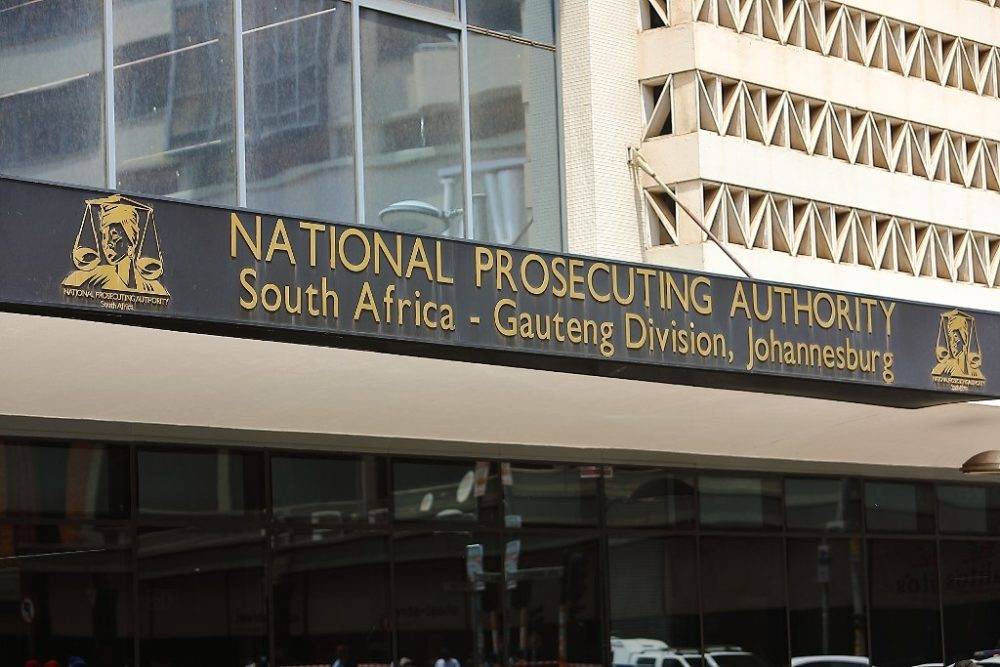
Mission: The NPA will tap into the private sector for expertise needed to get South Africa off the Financial Action Task Force grey list.(Fani Mahuntsi/Gallo Images)
The private sector will be tapped for expertise needed to get South Africa off the Financial Action Task Force (FATF) grey list and to prosecute complex state capture cases, deputy national director of public prosecutions Anton du Plessis said on Wednesday
The Directorate for Priority Crime Investigations (the Hawks) will get help from specialist forensic and financial experts for 20 priority cases as part of efforts to persuade the global money-laundering and terrorist-financing watchdog to remove South Africa from its caution list.
Du Plessis noted that the government was working against the clock to meet a January deadline to comply with the 22-item action plan imposed by the Paris-based task force.
He was speaking after a briefing by the presidency and Business for SA (B4SA), which mobilises private resources to resolve state infrastructure problems, after the first meeting of the forum since the May elections.
According to the presidency, Tuesday’s meeting reviewed progress on resolving infrastructure issues since it was convened last year, and will “identify further areas of collaboration” beyond the existing three of energy, transport and efforts to combat corruption.
Du Plessis described the third area as a “unique workstream”. It has so far yielded the least progress.
“It is very different to the others, in some ways quite a lot more complex and also a little bit more contentious to manage because of course we need to put in place firewalls throughout the process to protect the independence of the institution.”
He said it was a focus and time-bound effort to enhance government capacity to investigate complex crimes that cause the most damage to the economy.
It does not amount to outsourcing key government work to the private sector, he added. “Rather it is to tap into the very specialised skills that law enforcement and the criminal justice system need to keep pace with the complex and growing threat of crime that we see.”
The focus in coming months would be meeting FATF standards and strengthening the skill set of the National Prosecuting Authority’s (NPA’s) Investigating Directorate, notably on digital analysis.
“The two priorities that we will focus on for the next couple of months is obviously the issue that everyone is aware of of getting off the FATF grey list and we have very little, I think we have until January to get through the final two main substantive barriers.
“The most important one is demonstrating sustained progress in the prosecution of complex and standalone money-laundering and terrorist-financing cases.”
Hence the Hawks have identified 20 priority cases in this area where they are now working with the private sector.
“And of course this is key to that final qualitative assessment in getting off the grey list.”
South Africa was placed on the grey-list in February 2023.
Du Plessis said the NPA was working to enhance the capacity of the Investigating Directorate, which was initially established to deal with recommendations from the Zondo inquiry on state capture, and recently made a permanent body with an investigative mandate modelled on that of the defunct Scorpions.
“But a key missing ingredient and not only for the NPA but globally for prosecution services is the ability to engage with the complex issue of digital evidence, which is found on multiple encrypted devices and which needs to be extracted, analysed and obviously presented as admissible evidence in court.”
He said a special digital evidence unit would be set up and staffed by local and international experts.
“Very important to note, it will be governed by a board, which is being appointed, with some of the most respected jurists in the country as well as managed under a special purpose vehicle and that board will create the firewall between the NPA and this initiatives to make sure that there is no undue influence or perceptions of undue influence.”
The issue of digital data analysis was one of those that bedevilled the state’s fraud and money-laundering case against former Eskom chief executive Matshela Koko, which was struck off the roll by a Middelburg regional court magistrate last year because it was not trial ready a year after his arrest.
The state asked for another extension, inter alia to complete a data analysis report, for which the investigating officer was perusing 18 gigabytes or, as the magistrate put it, a “mind-boggling” billion pages of information.
His decision, which national director of public prosecutions Shamila Batohi has questioned, added to a list of setbacks the NPA has experienced with state capture cases and called into question its capacity to convict corruption kingpins.
In an overview of the work of its public-private collaboration, the presidency said the workstream on energy has been the most effective, achieving significant grid recovery and some 150 without load-shedding.
That reprieve was in part due to the reforms that have seen a significant increase in private solar generation, said James Mackay, the chairperson of the energy council.
“However, we still face multiple challenges including rapidly rising electricity costs, unsustainable municipal utilities, complex market reform, a constrained grid with delayed expansion, and stalling investment in new generation,” the president’s office said.
“Significant investment will be required for energy sector reform over the next five to 10 years.”
There was consensus at the meeting that it was “critical to pave the way now” in this regard, it added.
The National Energy Crisis Committee will therefore focus on transmission, market reform, municipal utilities and new energy generation.



 1 month ago
59
1 month ago
59















